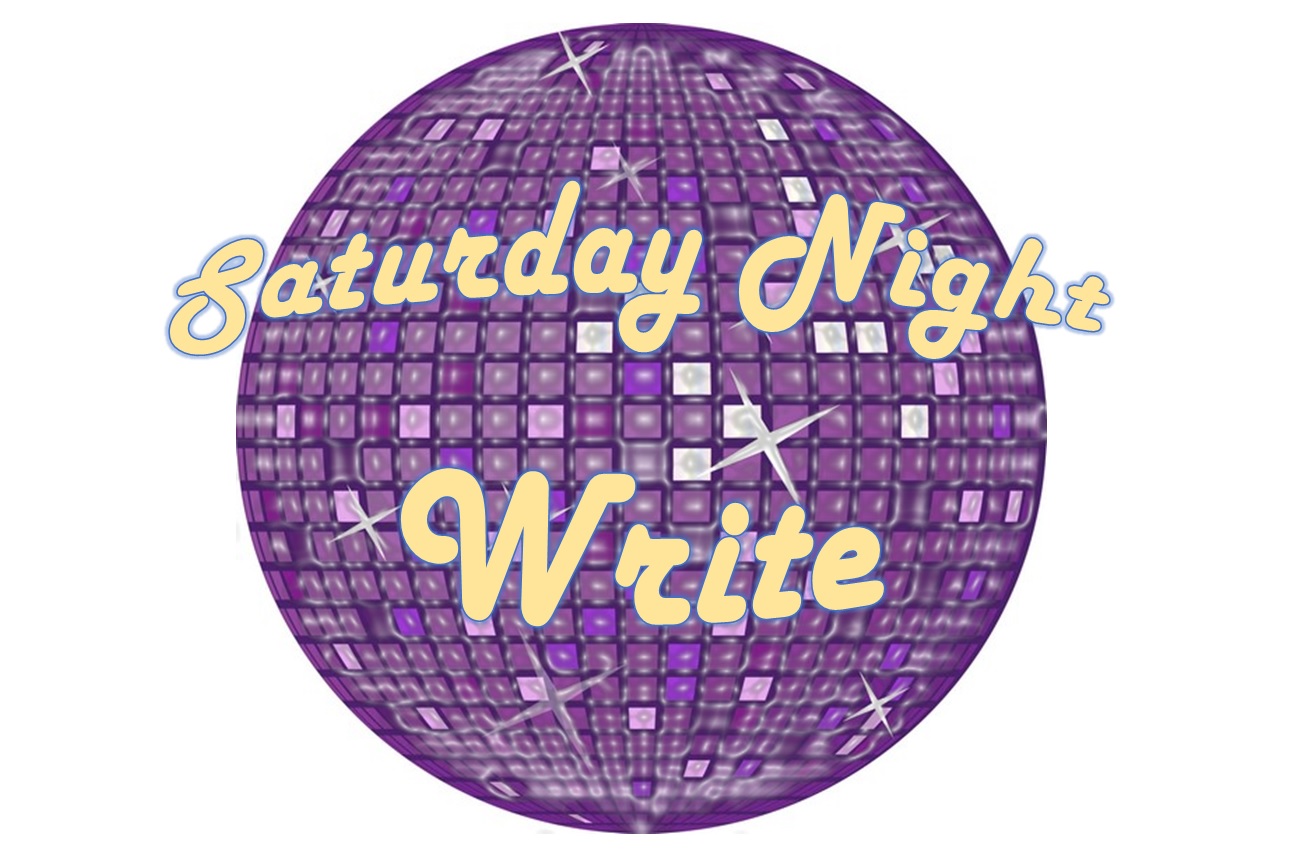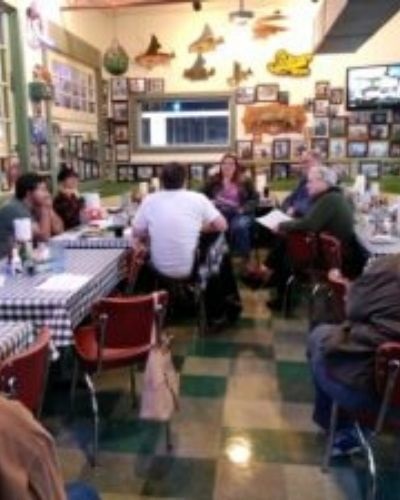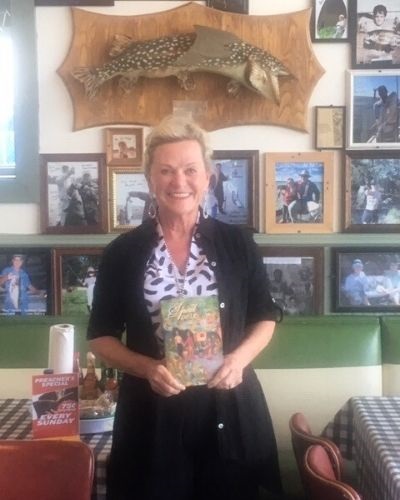
__
WELCOME!
Saturday Night Write meets on the third Saturday of each month to provide instruction and encouragement to writers in the community surrounding UT Arlington (and anyone else who wants to drive out to meet up with us). Our discussion leader presents a structured topic and background research to spark interactive participation, focusing on various aspects of craft. Everyone is welcome to join us for these FREE events.
Time: 4-6 PM
Location: Saturday Night Write will be meeting virtually until further notice. I hope you all look at this as an opportunity to explore ways to bring more people to our group and enrich our experience. You will notice that the topics have changed from what was originally on the web site. I think we all need to reconnect with the joy of writing, and the ways we can use words to escape the everyday, so I’m listing some of my favorite topics for that for April and May.
March – Candice Havens Guest Presentation
This month we will have a guest speaker! Candace Havens will present Twenty Things You Didn’t Know Your Novel Needs
What is it that makes a best-selling book? Find out tricks of the trade from former Editorial Director Candace Havens. She has information that can transform your book from okay to great.
Bestselling author Candace Havens has published more than 40 books. Her novels have received nominations for the RITA’s, Holt Medallion, Write Touch Reader Awards and National Reader’s Choice Awards. She is a Barbara Wilson Award winner. She is the author of the biography “Joss Whedon: The Genius Behind Buffy” and a contributor to several anthologies. She is also one of the nation’s leading entertainment journalists and has interviewed countless celebrities from George Clooney to Chris Pratt. She does film reviews with Hawkeye in the Morning on 96.3 KSCS, and is a former President of the Television Critics Association. She now writes several mystery series under the pen name Lucy Connelly, and her first mystery series is about to be a television movie.
websites: CandaceHavens.com
LucyConnelly.com
April – Amber Helt Guest Presentation
This month guest discussion leader Amber Helt will present, “A Bridge between Worlds: Revealing Character Arc through Metaphor.”
As you grow, you see the world differently. Well, so do your characters. Amber will lead a discussion on how to use the figurative language of your narrative to mirror your protagonist’s personality, growth, desires, and fears over the course of the novel. Let’s take your narrative on a hero’s journey of its own.
Amber Helt is a professional editor and writing coach with experience working with traditional publishing houses, independent presses, and self-publishers. In 2016, she decided to act on her frustrations of not getting enough face time with the authors she served and opened Rooted in Writing. Her editorial agency prides itself on strong client relationships and gardener-minded editing, where writers leave with not just a pruned manuscript but the seeds to grow as authors in their next project. Since then, she has worked with over 200 titles, including several Amazon bestsellers. Outside of editing, Amber writes dark fantasy and science fiction novels.
May — Before You Start Writing: Preparing to Write a Story
This month we will discuss story planning, pre-writing and ways to set your project for success. The more prepared you are to write a project that meets your audience’s expectations, and the more thought you put into setting up story elements, the less re-writing you are likely to have to do.
Join the discussion to consider: How much planning does your individual story really need? How much weight should you give to market conventions (such as expected word count)? What decisions do you need to make to narrow the story enough to get started?
June – Through the Sagging Middle: How to Finish Your Story
This month we will discuss how to complete a work in progress. The first act of a story is the easy part — introducing main characters, laying out the plot problem. Developing that beginning into an effective story is the hard part. Many writers complain about getting lost in the “sagging middle,” where decisions on plot and character development aren’t obvious, and it’s easy to follow threads that complicate the story in all the wrong ways.
Join the discussion to consider: How do you decide what should happen in the middle of your story (especially if you already know the end)? How can you keep track of plot threads, so that they are all well-developed and nothing gets dropped mid-way through? How can you use the things you’ve introduced in the first part of your story in interesting ways in the second part? And how can you finish your story, even when it seems tough?
July – What to Do After Typing, “The End!”
This month we will discuss story what happens after you complete your first draft. So much of writing is re-writing, but where do you even start?
Join the discussion to consider: How can you evaluate your manuscript for plot holes? What is big picture editing, and how can you do it in an organized fashion? What are some techniques for re-working a scene? Are there times you should scrap a scene or chapter and start writing it again from scratch?
August – Self-Editing Techniques
This month we will discuss how to edit your own work. Even if you plan to have beta readers or work with a professional editor, it is a good idea to polish your manuscript as much as possible before handing it over. After all, you don’t want your betas to spend all their time pointing out errors you could have fixed, and potentially missing more subtle issues.
Join the discussion to consider: How do you distance yourself from your work enough to effectively edit it? How do you figure out which mistakes you commonly make, so you can look for them? And what tools exist to make editing easier?
September – Making Readers Hungry (Food in Fiction)
This month we will discuss how to write about food in fiction. Food is something we all share, and it can help ground your characters, bring your setting alive and offer ways into epiphanies and sharing information.
Join the discussion to consider: How do you pick out evocative details when writing about food? If you’re writing a gnere where readers want to see recipes in the back of the book, how can you plan ahead to make the process seamless? And how can you use food to connect readers to your story?
October – Using Incidental Elements to Enhance the Story
This month we will discuss Using Incidental Elements to Enhance the Story. It’s an adage in writing that you can only find the universal in the specific. If your characters go out to a restaurant, it has to be a certain type of place, with specific decor and food. Those details can either enhance or distract from the story. And leaving them out makes it feel like the characters are in a blank room.
Join the discussion to consider: How can you choose incidental elements that will draw readers into the narrative? What about “Easter Eggs,” callbacks and homages? How can you appeal to the 5 senses with sensory writing?
November – Identifying Your Strengths and Weaknesses as a Writer
This month we will discuss Identifying Your Strengths and Weaknesses as a Writer. As with any art, it is good to be able to work on weak spots, and choose projects that play to your strengths. But first you have to be able to evaluate your own work.
Join the discussion to consider: How can a writer weigh strengths and weaknesses? What can you do to get better at a specific element you find difficult to master? How can a writer’s learning style play into this?
December – Effectively Handling Character Death
This month we will discuss character death and how to effectively portray it. Loss is often a part of stories, and characters can become stronger after dealing with it — or they can shatter in ways that create compelling fiction.
Join the discussion to consider: How can a truncated character arc surprise readers? How can characters express grief without descending into melodrama? How can gallows humor or heartfelt goodbyes make the loss of the character more palatable to readers?



